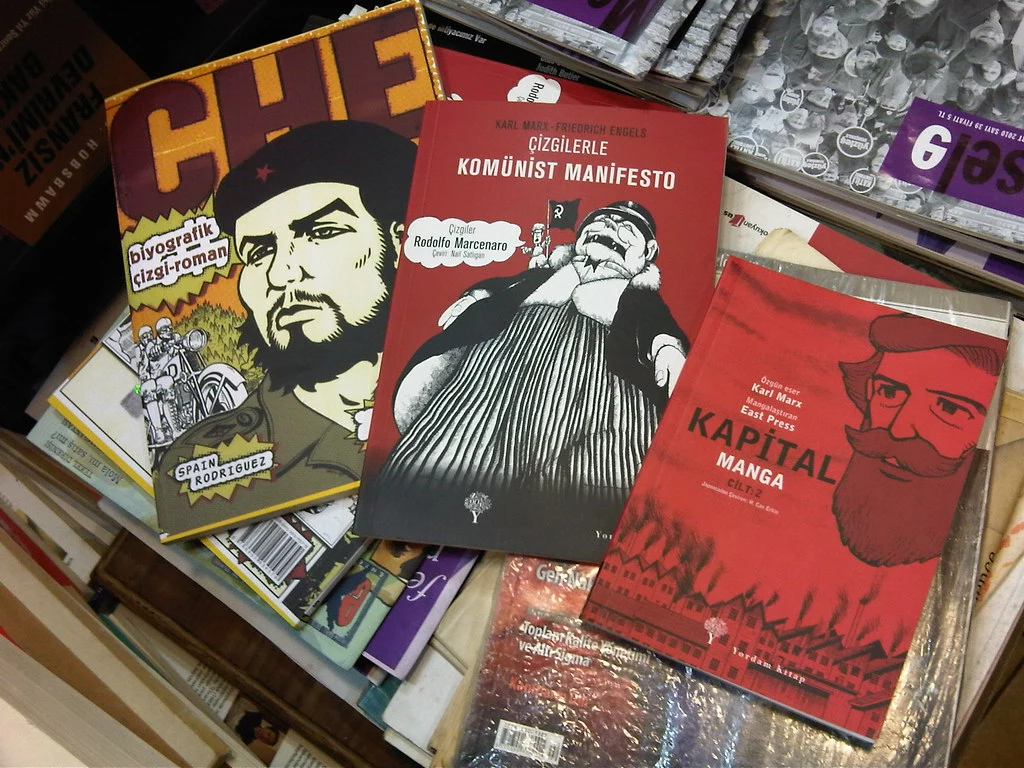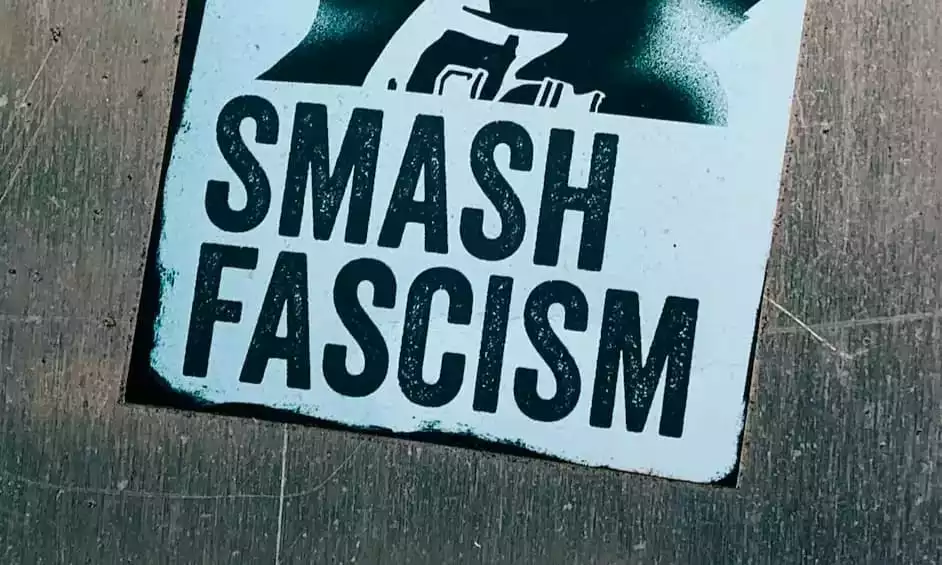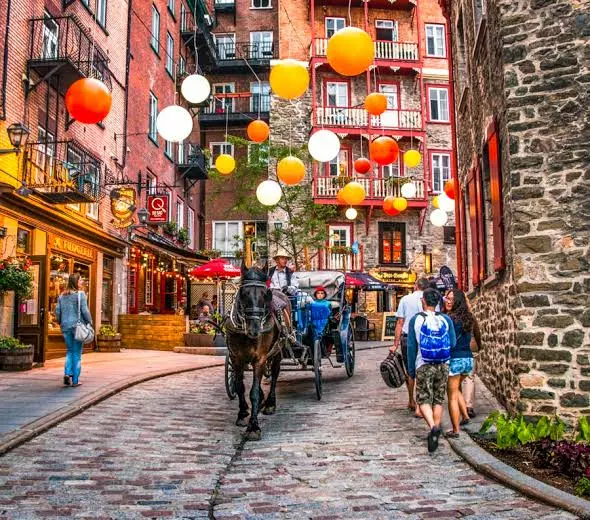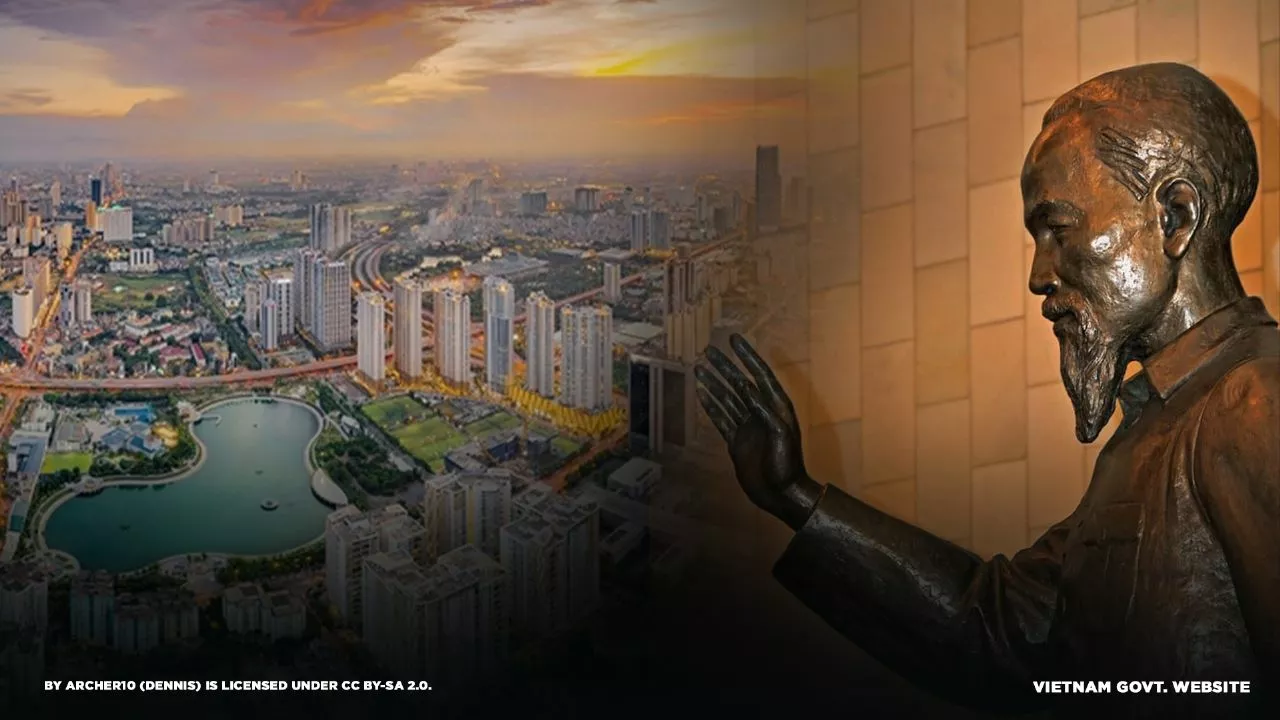Of course, we have all read, and all do read the Communist Manifesto. As we celebrate its 175th anniversary it is imperative to not only consider how we read it, but how it reads us. For how can it be that this text still accompanies us? That it can speak to us not only from the stage of world history where the victories and defeats of the class struggle have taken place and continue to do so, but also to the individual reader, or small group, enthralled by the discovery of the mechanisms of capitalist society. Its pages are present in every revolutionary movement, in its theory and in its practice, in their successes and failures, they are also present in every reactionary part of society as they cough and splutter trying to get its words out of their mouths as they attempt to deny or refute its concrete reality.
The Manifesto speaks to us all, and therefore universal in its import, for or against, it forces any and all who read it to take sides in the struggle. And we all read it. We read it alongside all those who have come before us. Lenin who drew his concept of the vanguard from its pages, “Communists are … the most advanced and resolute section of the working class parties of every country,” the watchword of every Marxist-Leninist party the world over. Or that he found in its pages that the concept of the dictatorship of the proletariat was a necessary tactic based off revisions made by Engels and Marx in light of the Paris Commune.
We read it not only in the texts and speeches made by Kautsky, Rosa Luxemburg, Stalin, Trotsky, Ho Chi Mihn, Thomas Sankara, and Gramsci, those who claimed to be its adherents, but also in the infinite reserve of its unrelenting bourgeois detractors that capitalism dedicates to justifying its own vicious existence. For better or worse, we read it alongside them. It is imperative not only to read it, but to read it again and again, for those are its demands.
Yet, how does it read us? It is only willful negligence that prevents a reader from seeing its contemporary import. Its words do not merely echo throughout history as a quiet murmur, they have built up into a deafening roar,
Meantime the markets kept ever growing, the demand ever rising … It [the bourgeoisie] has pitilessly torn asunder the motley feudal ties that bound man to his ‘natural superiors,’ and has left remaining no other nexus between man and man than naked self-interest, than callous ‘cash payment.’ It has drowned the most heavenly ecstasies of religious fervour … in the icy water of egotistical calculation. It has resolved personal worth into exchange value, and in place of the numberless and indefeasible chartered freedoms, has set up that single, unconscionable freedom—Free Trade. In one word, for exploitation, veiled by religious and political illusions, naked, shameless, direct, brutal exploitation.
In this relentless pursuit of exploitation, “it has converted the physician, the lawyer, the priest, the poet, the man of science, into its paid wage labourers,” and reduced families to a “mere money relation.” Finally, “into their place stepped free competition, accompanied by a social and political constitution adapted to it, and by the economical and political sway of the bourgeois class.”
Who cannot see that these words still concretely define our contemporary situation? In the ever accelerating expansion of world markets into every domain of life, the digital and the cosmos being two newer developments, which commodifies everything in its path. The reduction of all forms of labour into merely what is profitable, not what is useful. The destruction of community, families, religion, all in the name of exploitation.
The Manifesto rings clearly, there exists only one freedom today, the freedom from exploitation, which capitalists have rebranded as freedom of trade. The capitalist, then and now, will loudly proclaim, ‘but that is the greatest freedom of all, the freedom of trade!’ Be not their dupe. For the capitalist, it is the freedom of trade, not the freedom to trade. For what freedom exists for the worker with nothing to trade but their labour while the capitalist trades the commodities the worker produces on the market?
Freedom of trade only applies to the capitalist, who not only sells the products of labour (commodities) on the market, but also turns the labour power of the worker itself, the capacity to produce, into a commodity to be bought and sold as if it were any other item.
Or, to use the Manifesto’s words, “these labourers, who must sell themselves piece-meal, are a commodity, like every other article of commerce, and are consequently exposed to all the vicissitudes of competition, to all the fluctuations of the market.” This is one of the many ways the Manifesto still speaks to us and diagnoses our times.
There have been numerous attempts to reduce the Manifesto to a mere diagnosis of capitalism and nothing more, but that is to deny that it is fundamentally a political text. It does not only announce the existence of class antagonisms, it calls for the organization of workers towards the struggle for their emancipation. All across Europe the text is still being read in the millions of workers who take to its streets in the name of the emancipation of the worker.
The Manifesto does not merely speak to the Communist League for whom it was published on 21st February, 1848. It is a political programme that endures until this day. Those millions who march today add pages to the history of its cause. All across Europe the struggle continues. Across all industries in all countries workers have shifted from the defensive to the offensive in the face of the capitalist class increasingly eroding their rights. A coalition of these forces could crumble the halls of the ruling class. Notions such a ‘living wage’ or a ‘minimum wage’ are no longer acceptable as the current economic crisis has rendered them empty and hollow. As the cost of living ever rises thanks to inflation and rising energy prices exacerbated by the war in Ukraine, a wage increase does little to ease the burden the ruling classes expects the working class to bear. This burden weighs ever more greatly on the shoulders of the working class as the ruling class, typically in times of economic crisis, brings in their so called ‘austerity measures’ which are nothing but thinly veiled programs designed to disembowl public services such as hospitals, public transport, and social welfare programs. At a time of record corporate profits, this austerity is only for the working class, who have to scrimp and save what little money they have left, while the ruling class reaps the superprofits of brute exploitation. What workers are calling for is an emancipation from working conditions that are dictated by the demands of the capitalist mode of production, so that they may truly and concretely obtain self-determination in not only their workplaces, but in their lives. These struggles are not localized to Europe, they exist across the world.
The Manifesto still reads us as partisans of a cause, it interpellates us as a members of particular class, the working class and the capitalist class, the proletariat and the bourgeoisie, that the relation between the two is fundamentally antagonistic. However, once more, the Manifesto is not merely a description of class society, it also names the political force which is to guide the struggle: the Communists. Who are they? The Manifesto states -
The Communists are distinguished from the other working-class parties by this only: 1. In the national struggles of the proletarians of the different countries, they point out and bring to the front the common interests of the entire proletariat, independently of all nationality. 2. In the various stages of development which the struggle of the working class against the bourgeoisie has to pass through, they always and everywhere represent the interests of the movement as a whole.
Communists are not outside of the working class where they govern and dictate what is to be done. They are the working class, embedded within it, armed with the theoretical knowledge and practical ability to raise the level of class consciousness towards revolutionary activity. Indeed, communist are workers, they are the working class, they are not detached from its immediate struggles and conditions. Against a global capitalist force, an international workers’ movement is needed. One must never forget that the capitalists are also organized as a class, and they bring with them all the forces of the modern world with them. But numerically they will always be inferior.

Rather than concluding in the traditional way of citing the closing lines of the Manifesto, a poem, printed onto the Banner of Operative Painters & Decorators Union of Australasia, Victorian Branch from 1915, is in order.
UNITY
The murmurs
that go to make
the thunders roar
Taken singly, might -
Lull an infant to repose
United their very crash
would shake the eternal
vaults of Heaven






